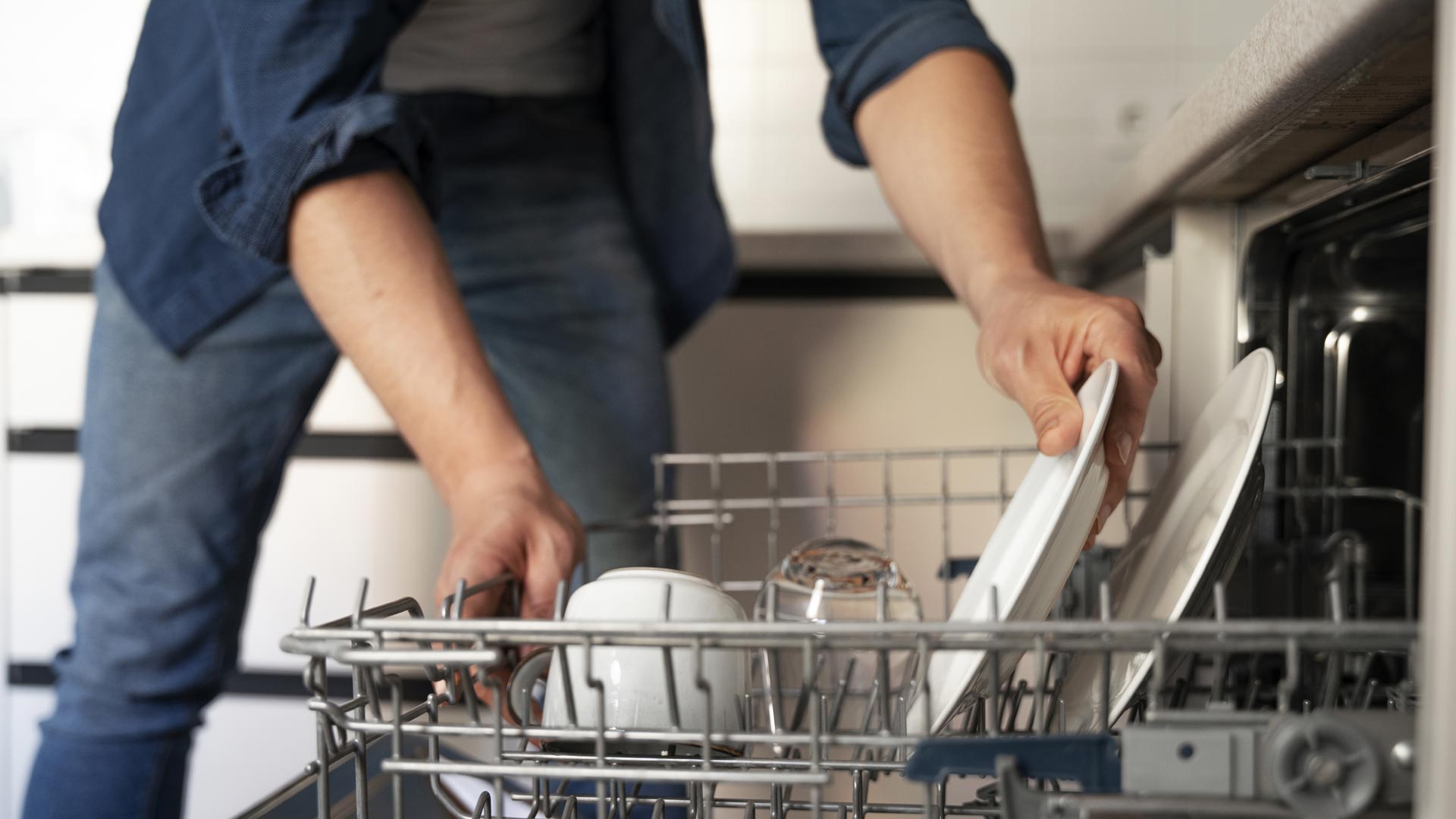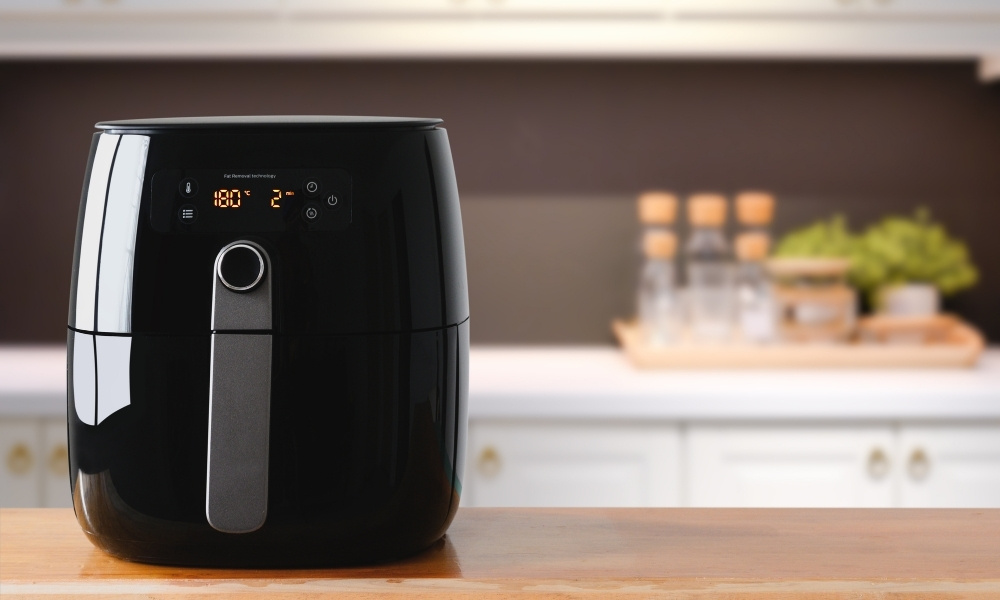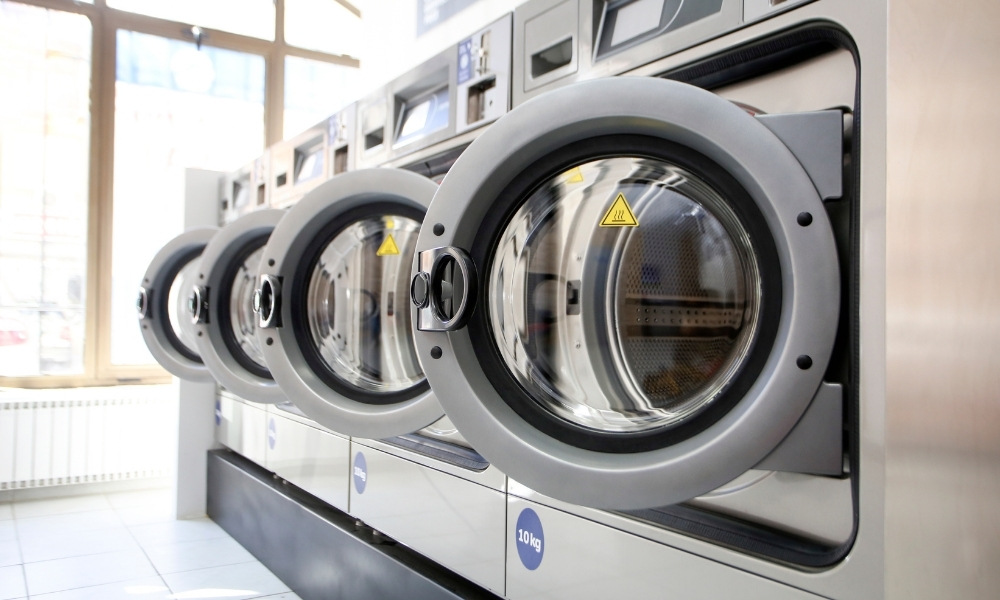How to Use a Dishwasher the Right Way: 5 Tips Leave a comment
Washing dishes requires a lot of time and water, but most of us who live in urban settings do not have enough of both. A dishwasher can save you time, wash your dishes in one go, and save you a lot of effort. But have you ever opened your dishwasher after a wash to find that the dishes are still not cleaned?
It’s frustrating and time-consuming when this happens, but there is a reason why this is happening: if your dishes aren’t clean, it’s because you skipped a few steps before loading the dishes or failed to maintain your dishwasher properly.
Dishwashing should not be a big task, but when you get to the end of a cycle and the wash bin is still full of filthy dishes, you are forced to repeat it. While a dishwasher is a very helpful and important home appliance for cleaning your dishes and utensils and saving time, it needs the same care and maintenance as any other essential electronic appliance. Here we have 5 tips to share with you that will help you maintain and use your dishwasher in the right way.
- Scrape it, don’t wash it!
Modern dishwashers have sensors to determine the amount of water and time needed to clean dishes. The idea behind a dishwasher is to get dishes clean on the first run, but a lot of people think pre-rinsing their dishes will make it easier for the dishwasher to clean everything on the first go, but this is an unnecessary step to take while using a dishwasher. The dishwasher will detect little food and give them a lighter wash, leaving bits of food on plates and glasses. Running dishes under the sink can remove stuck-on food, but it wastes too much water and makes the scrubbing power from detergent less effective as well.
Instead of pre-rinsing, scrape off the leftover food because it can block spray jets and drainage pipes and promote bacterial growth. Scraping off leftovers before placing the plates in the dishwasher can also help the appliance work harder to clean the first time. If your dishes are full of grease or burnt-on food, try selecting the sanitising feature on your washer, because the high temperature inside the washer will create a more thorough rinse cycle with better force.
- Soap and water
If you are using a dishwasher to clean your dishes, the right soap matters. There are various detergent brands available in powders, tablets, and gels, so choosing the right detergent depends on factors like price, type, and your preference. You might be tempted to overuse the soap, hoping it will clean your dishes thoroughly, but don’t. Excessive buildup of soap is not good for your washer; it can build up moisture, and the residue can stick to the internal compartments of the washer. Instead, make sure you put only the right amount of soap in each wash load.
Hot water kills more germs and bacteria, but water pressure is a crucial factor in dishwasher performance. Harder water can cause chips, cracks, and breaks, so testing if a water softener can make a difference in how your dishwasher treats your dishes is a good step. We can’t control the hardness of water, but there are little tricks to make it better. For example, if you add vinegar to the rinse cycle, it can stop the filmy residue left by the hard water and may add an extra sparkle to your dishes. Vinegar also helps get rid of old food spots and keeps your dishwasher smelling fresh.
- No overloads
Having a full load before running your dishwasher will save water, energy, and soap. But overfilling your dishwasher is not a good idea, so to load the dishwasher in the right way, make sure you follow the manual with your dishwasher. To avoid water and soap blockages, load big things along the sides and rear. Make sure the filthy dishes face the centre; place things with burned-on food on the bottom rack, facing down towards the sprays. Place your glasses upside down, and keep the plastic and fragile dishes on the top rack. Loading your dishes in the right way can ease the process and might give you a thorough wash on the first cycle.
- Hot water
Another neat little trick to try is to turn on the tap before the cycle and run the water until it is hot to touch. This will make sure that your first cycle uses hot water instead of cold water. The water will transfer faster from the water heater, reducing energy costs. That brief burst of heat will drive your dishwasher, and it reduces the amount of time to heat up and wash the dishes.
- Clean filters
Regularly cleaning the filter is important for properly maintaining the dishwasher. If you see water pooling inside the washer after each cycle, the filter is most probably clogged with food particles and scraps. Spray the filter or wash it with hot water to prevent this buildup and growth of bacteria. Over time, residue can accumulate on the dishwasher seals, especially on the rubber gasket around the door and detergent compartment; wipe them down with a soaked towel to clean grime and keep the washer in good condition. Regular cleaning is essential for your dishwasher to remain in great shape and work properly.
Buying home appliances in Kerala?
If yes, then buy from the best home appliance dealer in Kerala!
Is your dishwasher sparkly clean now? You are welcome!
We need these tools for our homes to function properly and, by extension, our lives. Your home reflects who you are, so if you are out hunting for the perfect appliances for your home, buy them to match your taste and the aesthetics of your home from the most trusted home appliances dealer in Kerala. Enjoy the most extensive collections and brands at Kannankandy showrooms and our e-store!
Let your home shine as bright as you are!






